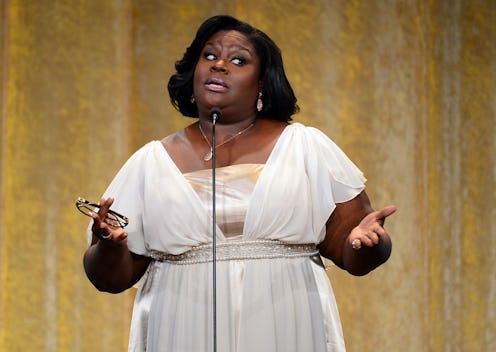Entertainment
Comedy, Stop Ignoring Women of Color
This week proves that we are in a “golden age of comedy” for women. Garfunkel and Oates landed a development deal with IFC, Rebel Wilson’s Super Fun Night debuted to outstanding ratings, and Chelsea Peretti stole the show on Brooklyn Nine-Nine. Actually, I should rephrase. This week proves we are in a “golden age of comedy” for white women. As Tina Fey, Amy Poehler, and Julia Louis-Dreyfus continuously receive respect and accolades from the comedy world, the expression “women aren’t funny” is finally being exposed for its biased inaccuracy in mainstream television. Unfortunately however, a new, equally oppressive expression seems to be taking its place: “women of color aren’t funny.”
Save for the ramblings of small bloggers and anonymous posters on Reddit boards, this exact phrase is usually not explicitly said. Instead, it is implied by the sheer lack of women of color landing development deals, stand-up specials, award nominations, and career-making guest spots on everything from Modern Family to The Roast of James Franco. At the 65th Primetime Emmy’s, not a single woman of color was nominated for Outstanding Lead Actress in a Comedy Series, and in the Outstanding Supporting Actress in a Comedy Series, only Sofia Vergara was nominated. These nominations not only reflect the voters’ biases, but also the lack of women of color with leading or significant supporting roles on comedy programs. To say that because Mindy Kaling has her own series, Rashida Jones has two development deals with major networks, and Retta keeps earning hosting gigs doesn’t disprove that funny women of color are underrepresented on television. In fact, such a justification — or better yet, the need for such a justification — only suggests that the problem exists. Just as Gilda Radner’s and Mary Tyler Moore’s successes were touted as examples that both the networks and the comedy world didn’t discriminate against women in the 1970s, now are Kaling’s and Jones’.
Members of the comedy community agree. Jay Pharoah has been outspoken about the fact that SNL, which boasts a 16-person cast and no women of color, needs to bring on an African-American comedienne like Darmirra Brunson.
But recognizing women of color in comedy is more than casting Damirra Brunson on SNL; it’s promoting all of those women of color who are talented unknowns and would-be superstars beyond the realm of opening acts and underfunded Youtube web series.
Off the top of my head, I can name five comediennes across ethnicities who are as talented and deserving of recognition as recent up-and-comers like Amy Schumer, Casey Wilson, and Natasha Leggero. Ali Wong, Aparna Nancherla, Bethany Van Delft, Michelle Buteau, and Elicia Sanchez. Only when these amazing, hard-working women and their equally deserving counterparts receive the attention owed to them can we truly deem this the “golden age of comedy.”
